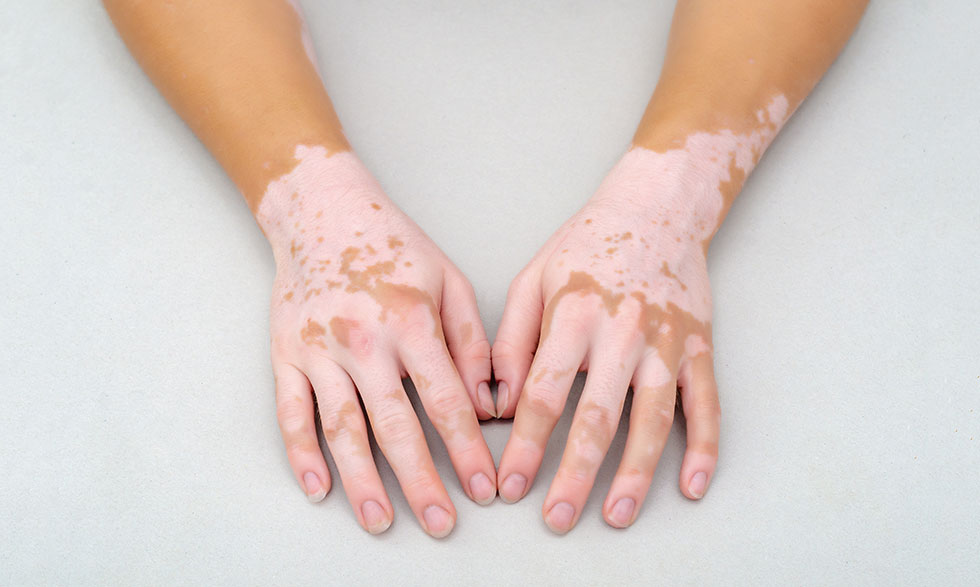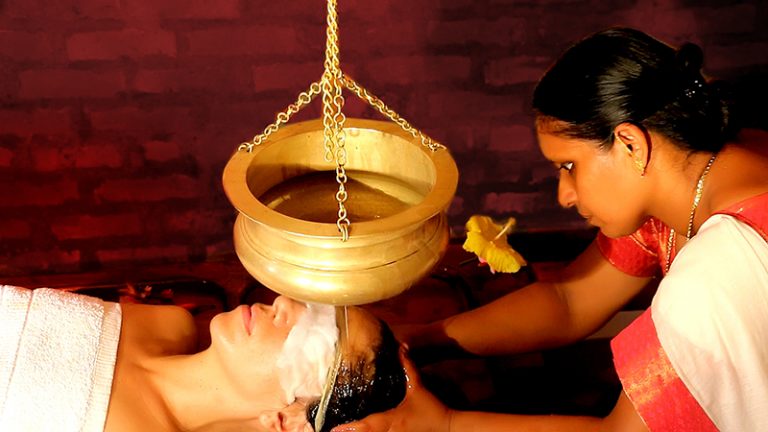Vitiligo is a skin condition that affects many people all around the world. It is characterized by the loss of skin pigmentation, resulting in white patches on the skin. The condition can be distressing and can have a significant impact on a person’s self-esteem and quality of life. While modern medicine offers several treatment options for vitiligo, Ayurveda has long been considered an effective and safe way to manage the condition.
Ayurveda is a traditional system of medicine that originated in India many thousands of years ago and has since been used to treat a myriad of health conditions and issues. According to Ayurveda treatment in Kerala, vitiligo is caused by an imbalance of the three doshas – Vata, Pitta, and Kapha – in the body. This imbalance can be caused by several factors, including stress, poor diet, and environmental toxins.
Ayurvedic treatment for vitiligo aims to restore the balance of the doshas in the body and promote healthy skin. Here are some of the most effective Ayurvedic herbal remedies for vitiligo management:
● Bakuchi (Psoralea corylifolia): Bakuchi is a herb that has been used in Ayurveda for centuries to treat skin conditions. It contains a compound called psoralen, which has been found to stimulate melanin production in the skin. Melanin is the pigment with which the skin gets its colour. Bakuchi can be applied topically or taken internally in the form of capsules or powder.
● Turmeric (Curcuma longa): Turmeric is a spice that is commonly used in Indian cuisine. It has potent anti-inflammatory and antioxidant properties that make it effective in managing vitiligo. Turmeric can be taken internally in the form of capsules or added to food. Furthermore, you can also make turmeric paste and apply it topically.
● Neem (Azadirachta indica): Neem is a tree that is commonly found in India. Its leaves and bark have potent antimicrobial and anti-inflammatory properties that make it effective in managing skin conditions. Neem can be applied topically or taken internally in the form of capsules or powder.
● Guduchi (Tinospora cordifolia): Guduchi is a herb that has been used in Ayurveda for centuries to boost immunity and promote overall health. It has potent antioxidant properties that make it effective in managing vitiligo. Guduchi can be taken internally in the form of capsules or powder.
● Ashwagandha (Withania somnifera): Ashwagandha is a herb that is commonly used in Ayurveda to manage stress and anxiety. It has potent anti-inflammatory and antioxidant properties that make it effective in managing vitiligo. Ashwagandha can be taken internally in the form of capsules or powder.
● Amla (Indian gooseberry): Amla is rich in vitamin C and has antioxidant properties. It helps to boost the immune system and improves the production of melanin. Amla can be taken orally or applied topically as a paste.
● Khadir (Acacia catechu): Khadir is a herb that has antimicrobial and anti-inflammatory properties. It helps to purify the blood and is beneficial in managing vitiligo. Khadir can be taken orally or applied topically.
● Kustha (Saussurea lappa): Kustha is a herb that has anti-inflammatory properties and helps to improve the immune system’s function. It is beneficial in managing vitiligo and can be taken orally or applied topically.
In addition to these herbal remedies, Ayurveda also recommends making lifestyle changes to manage vitiligo. This includes managing your stress levels, maintaining a healthy diet and lifestyle as well as exercising regularly.
Benefits of Ayurveda for Vitiligo Management
Ayurveda offers several potential benefits for the management of vitiligo, a skin disorder characterized by loss of pigmentation in patches on the skin.
Here are some of the ways in which ayurveda may help with vitiligo management:
● Detoxification: Ayurvedic treatments such as Panchakarma are designed to detoxify the body and remove toxins that can contribute to the development of vitiligo.
● Immune system support: Ayurvedic herbs and supplements can help to support the immune system and reduce inflammation, which can help to prevent the spread of vitiligo.
● Nourishment of the skin: Ayurvedic oils and creams can be used to nourish and moisturize the skin, which can help to reduce the appearance of vitiligo patches.
● Stress reduction: Ayurvedic treatments such as meditation, yoga, and breathing exercises can help to reduce stress and anxiety, which can exacerbate vitiligo symptoms.
● Herbal remedies: Ayurvedic herbs such as turmeric, neem, and guduchi have been used traditionally to treat vitiligo and may have antioxidant and anti-inflammatory properties.
● Lifestyle modifications: Ayurveda recommends making dietary and lifestyle modifications to support overall health, which can also help to improve the symptoms of vitiligo.
Final Word
Ayurvedic herbal remedies can be effective in managing vitiligo since they work primarily by balancing the doshas. However, it is important to consult a qualified Ayurvedic practitioner before using any herbal remedies as they can have potential side effects and interactions with other medications. If you are interested in trying Ayurvedic herbal remedies for vitiligo management, it is important to consult with a qualified Ayurvedic practitioner. They can recommend the best herbs and dosages for your individual needs for a Vitiligo treatment in Ayurvedic.





